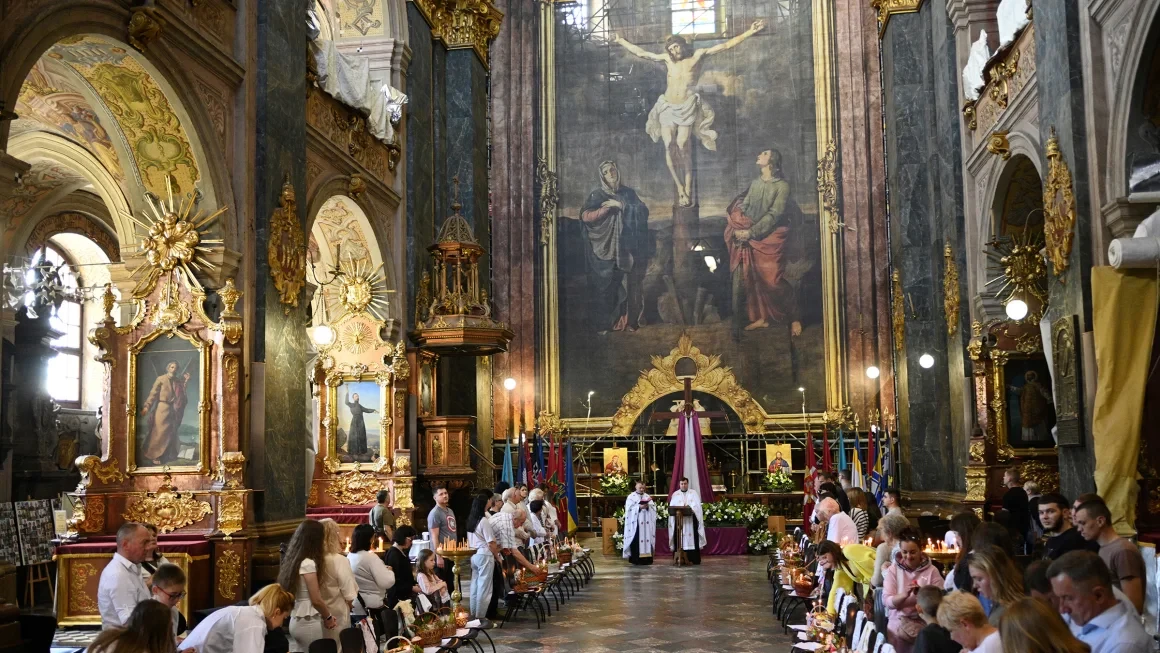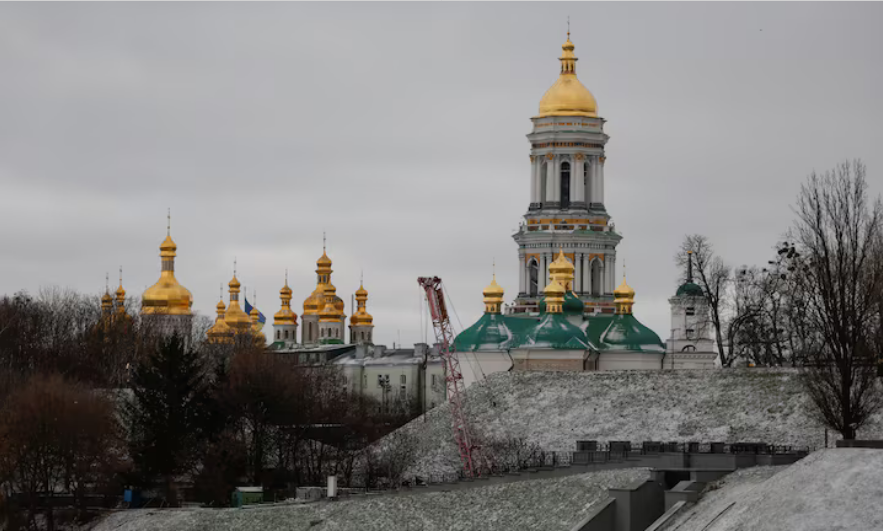Ukraine bans Russia-linked religious groups, ratifies Rome Statute
 Ukrainians attend a service on the eve of Orthodox Easter at the Saints Peter and Paul Garrison Church in Lviv, Ukraine on May 4, 2024. (AFP Photo)
Ukrainians attend a service on the eve of Orthodox Easter at the Saints Peter and Paul Garrison Church in Lviv, Ukraine on May 4, 2024. (AFP Photo)
Ukrainian President Volodymyr Zelenskyy signed into law a ban on religious organizations linked to Russia, furthering Ukraine’s efforts to distance itself from Russian influence amid ongoing conflict.
The bill’s main target is the Ukrainian Orthodox Church (UOC) which has historically been linked to the Russian Orthodox Church, also known as the Moscow Patriarchate. The status update on Ukraine’s parliamentary website, Verkhovna Rada.
New law targets religious ties with Russia
The legislation, approved by the Ukrainian parliament with 265 votes in favor, seeks to “make it impossible” for religious organizations tied to a state that “exercises armed aggression against Ukraine” to function in the country.
Ukrainian President Zelenskyy praised the bill, stating it was a step towards “strengthening Ukraine and our society,” and described it as crucial for Ukraine’s “spiritual independence.”
The law, signed on Saturday, gives the UOC and other religious groups nine months to sever their connections with Russia or face potential shutdown by court order.
Zelenskyy referenced the bill in his nightly address, saying “Ukrainian orthodoxy today is taking a step toward liberation from the devils of Moscow.”

Ongoing concerns over UOC’s Russian links
Although the UOC claims it cut ties with the Russian Orthodox Church in 2022, Ukraine’s State Service for Ethnic Policy and Freedom of Conscience argues that these links remain intact.
The Ukrainian Security Service (SBU) has accused the UOC of spreading pro-Moscow propaganda, leading to criminal proceedings against more than 100 clergymen since Russia’s full-scale invasion. Nearly 50 have been charged, and 26 have been sentenced, including a cleric who used sermons to justify the invasion and encouraged parishioners to support Russia.
Political, religious responses to ban
Mykyta Poturaiev, a Ukrainian member of parliament who sponsored the bill, stated that the purpose of the law is to ban the activities of the Moscow Patriarchate in Ukraine, describing it as “an instrument of Russian influence and propaganda.”
The leader of Ukraine’s Kyiv-based Orthodox Church, Metropolitan Epiphanius, supported the law, stating it is essential to “protect the Ukrainian spiritual space from the yoke of the Russian world.”
However, not all responses were supportive. Metropolitan Clement, the spokesperson for the UOC, criticized the law on Facebook, calling it an attempt to “divide people into right and wrong citizens.”
Public opinion on UOC
Public sentiment in Ukraine appears to be in favor of the law. According to a survey conducted by the Kyiv International Institute of Sociology (KIIS) in April 2024, 83% of Ukrainians believe the state should intervene in the activities of the UOC to some extent, with 63% supporting a complete ban on the church in Ukraine.
Reactions among Ukrainian citizens are mixed. Outside a UOC church in Kyiv, a 47-year-old parishioner expressed frustration, stating: “The government is now creeping into my soul. It is up to me to decide how I pray.”
Meanwhile, Ihor, a Ukrainian officer, acknowledged presence of pro-Russian sentiment within the UOC but believes that those involved “must answer before God.”



